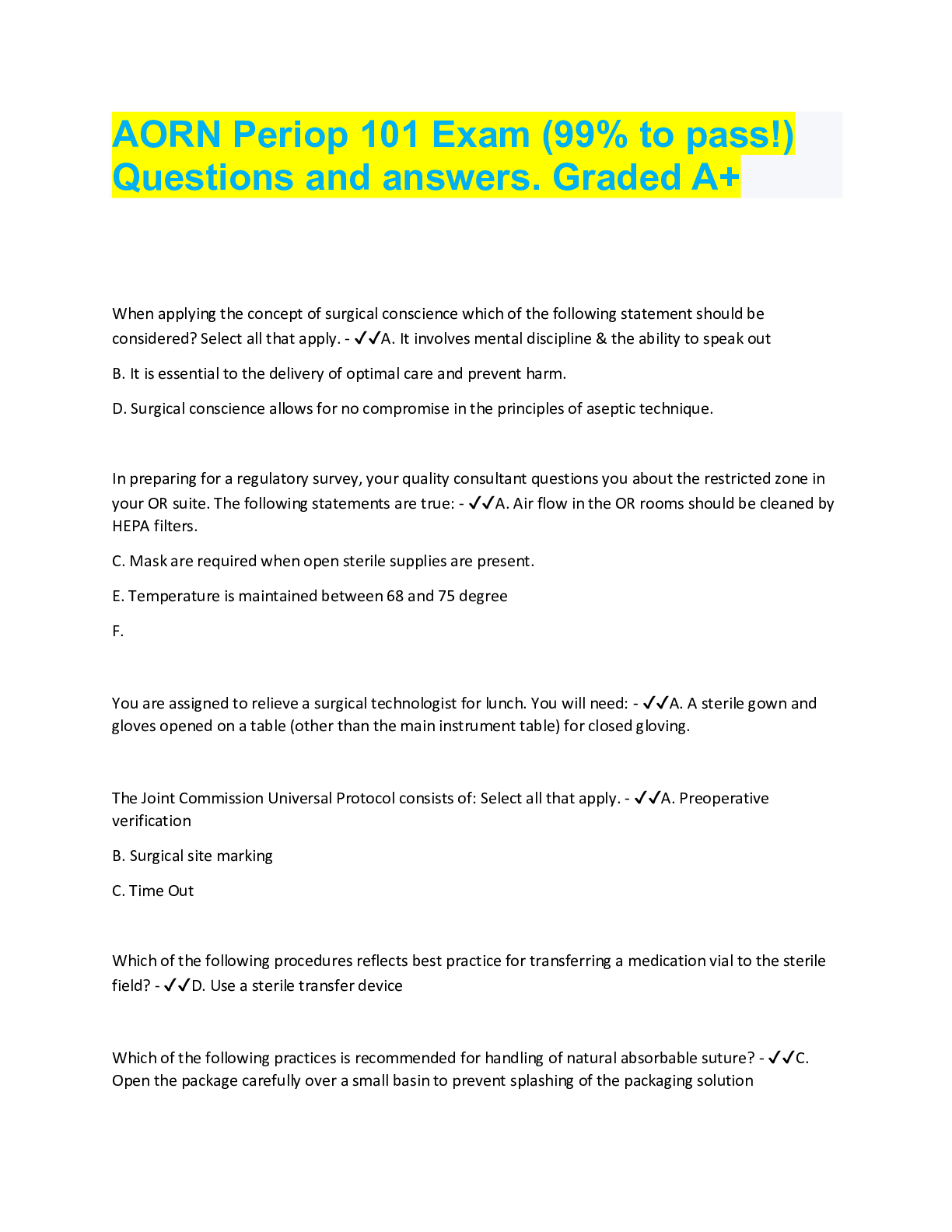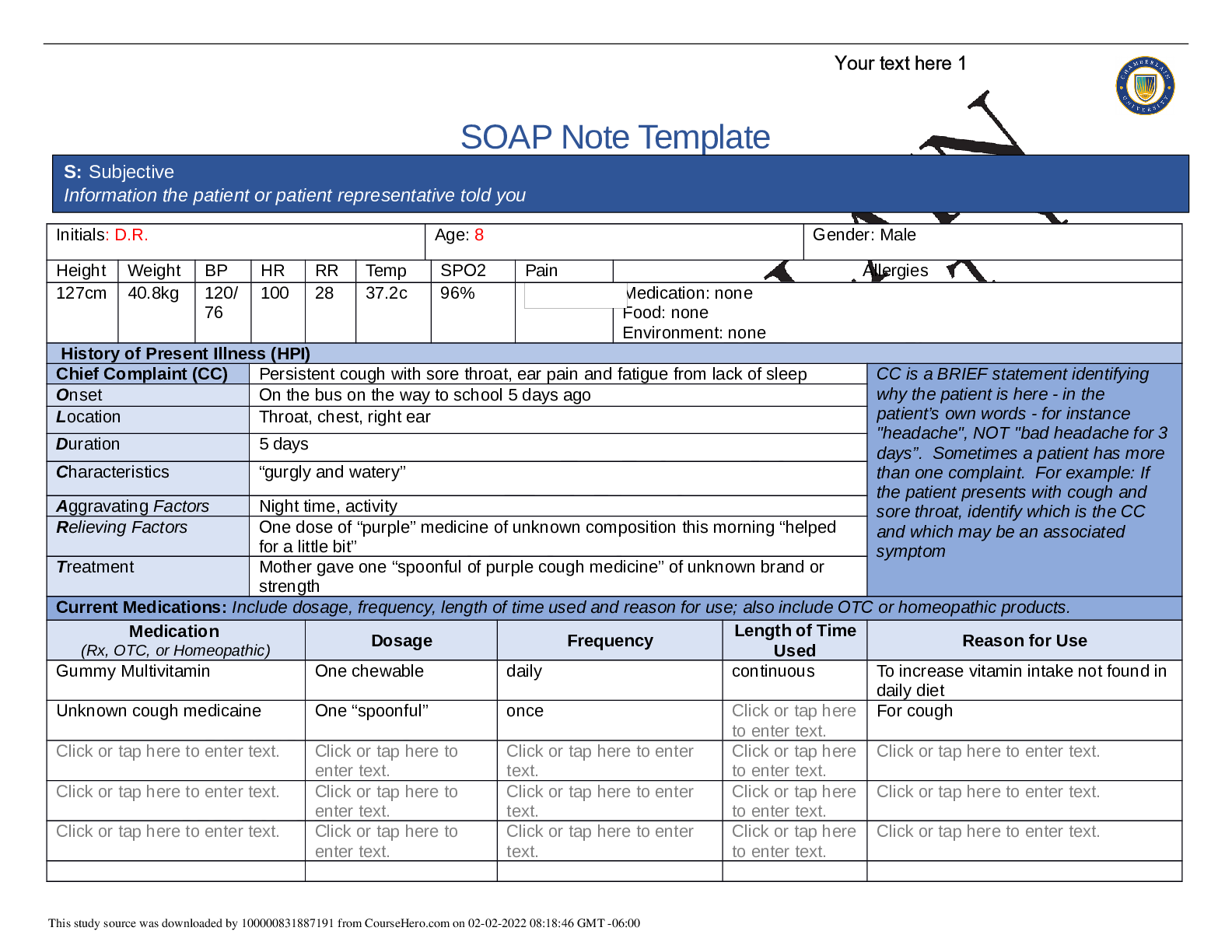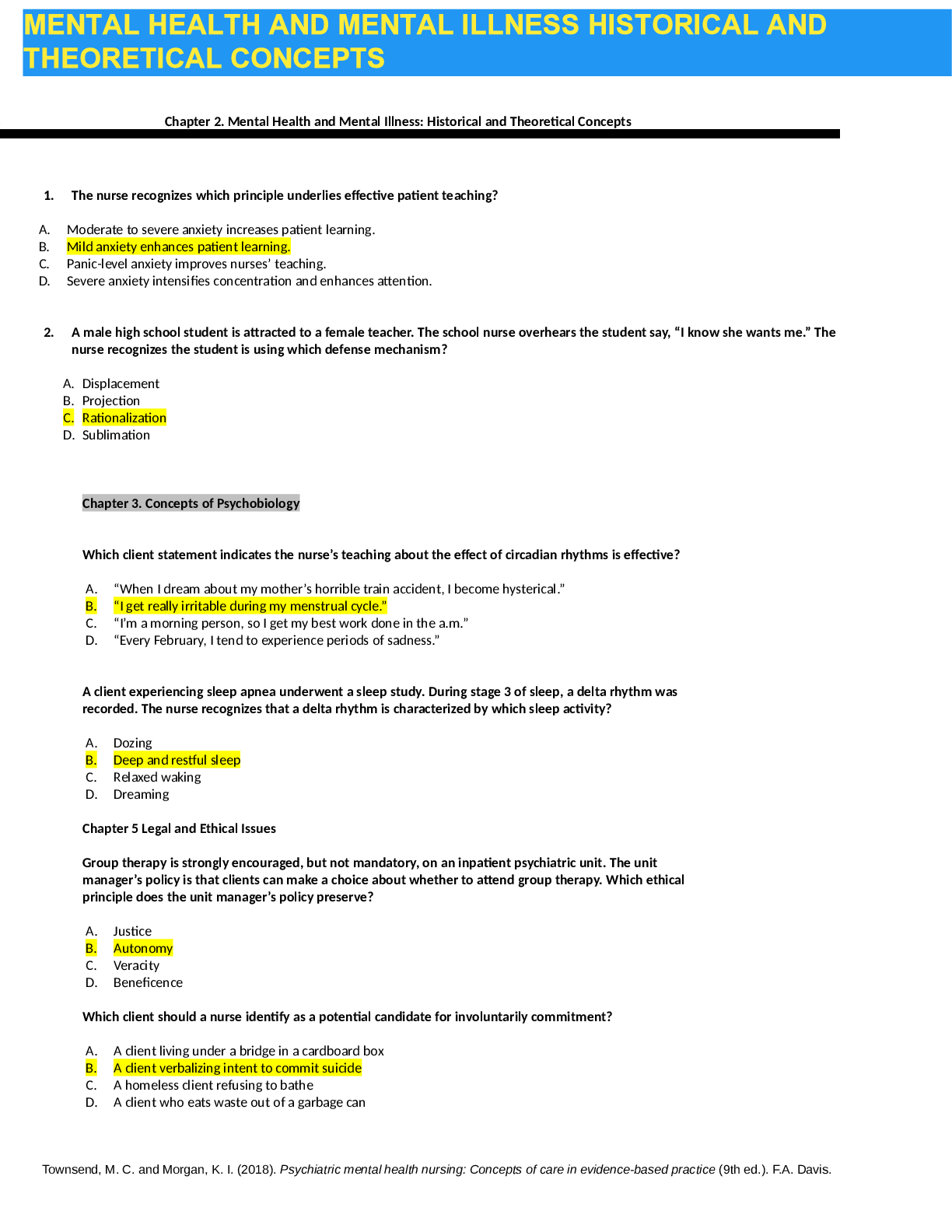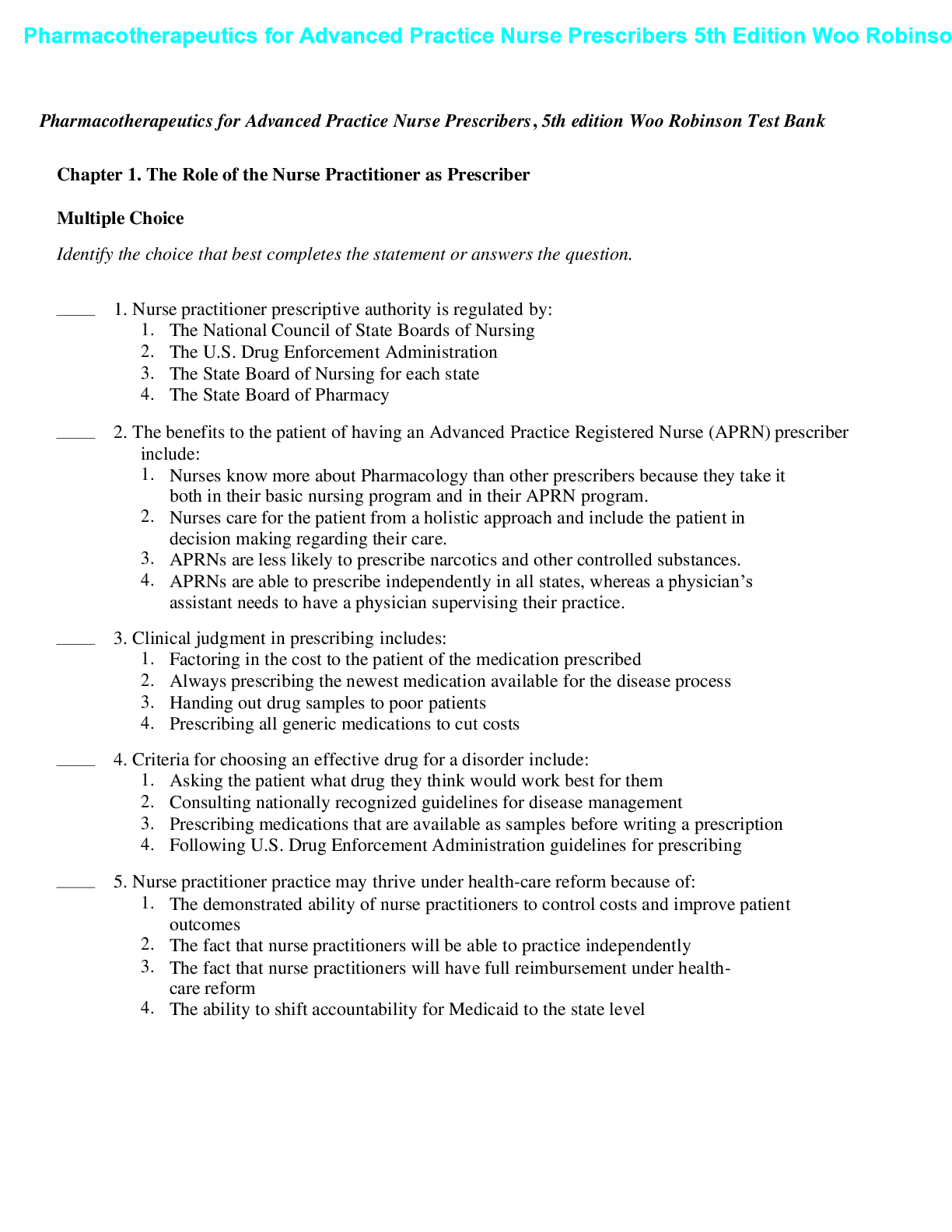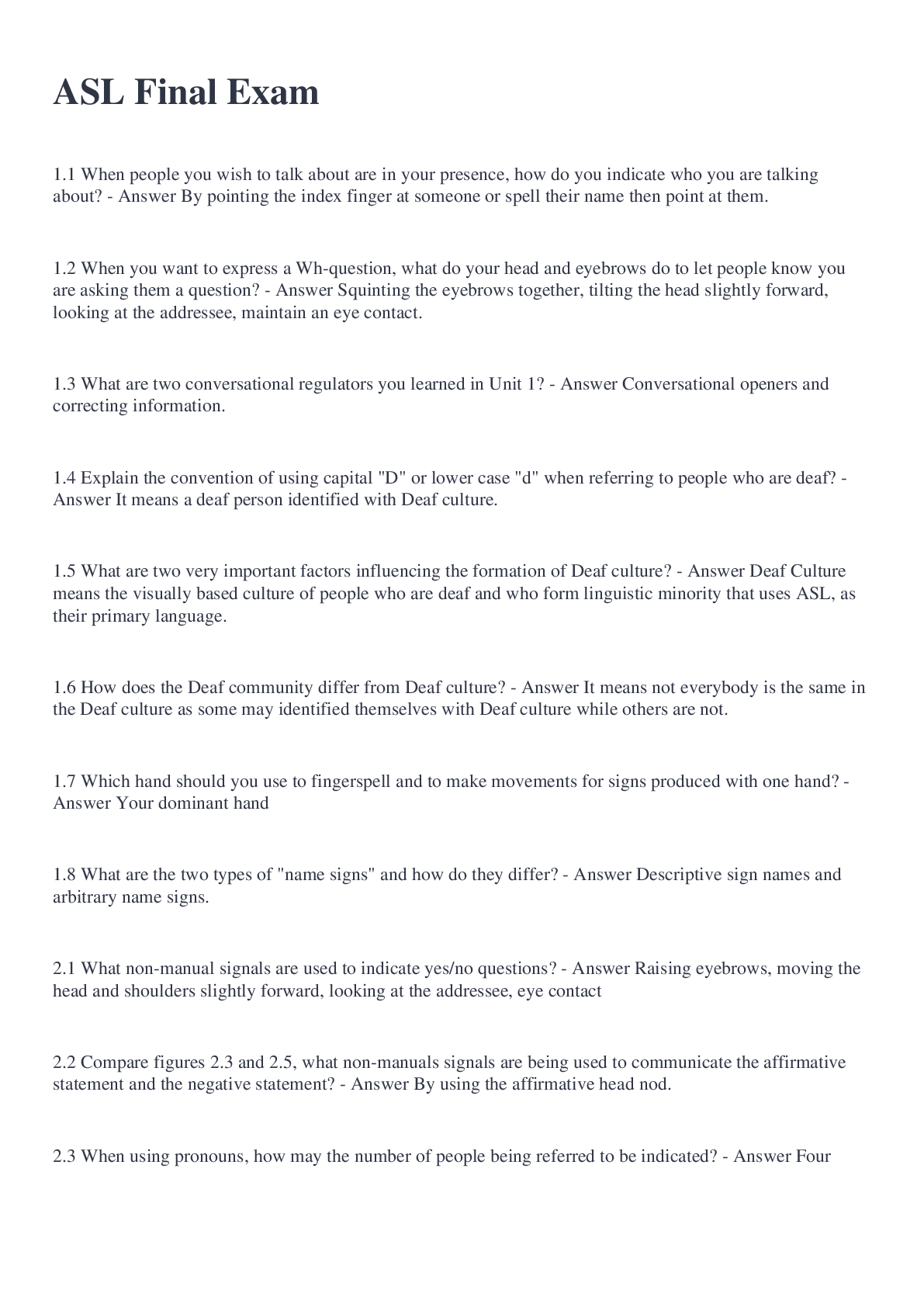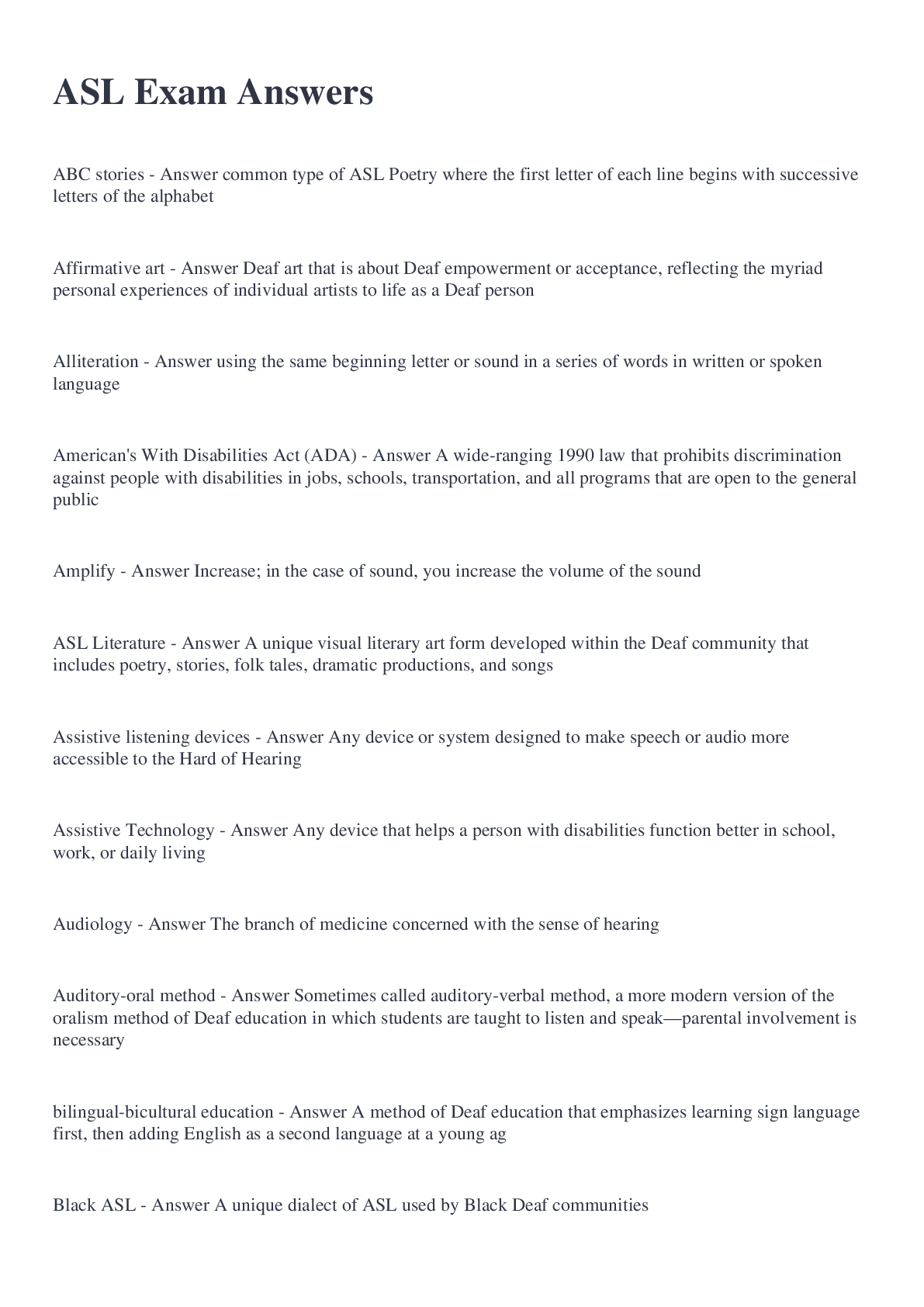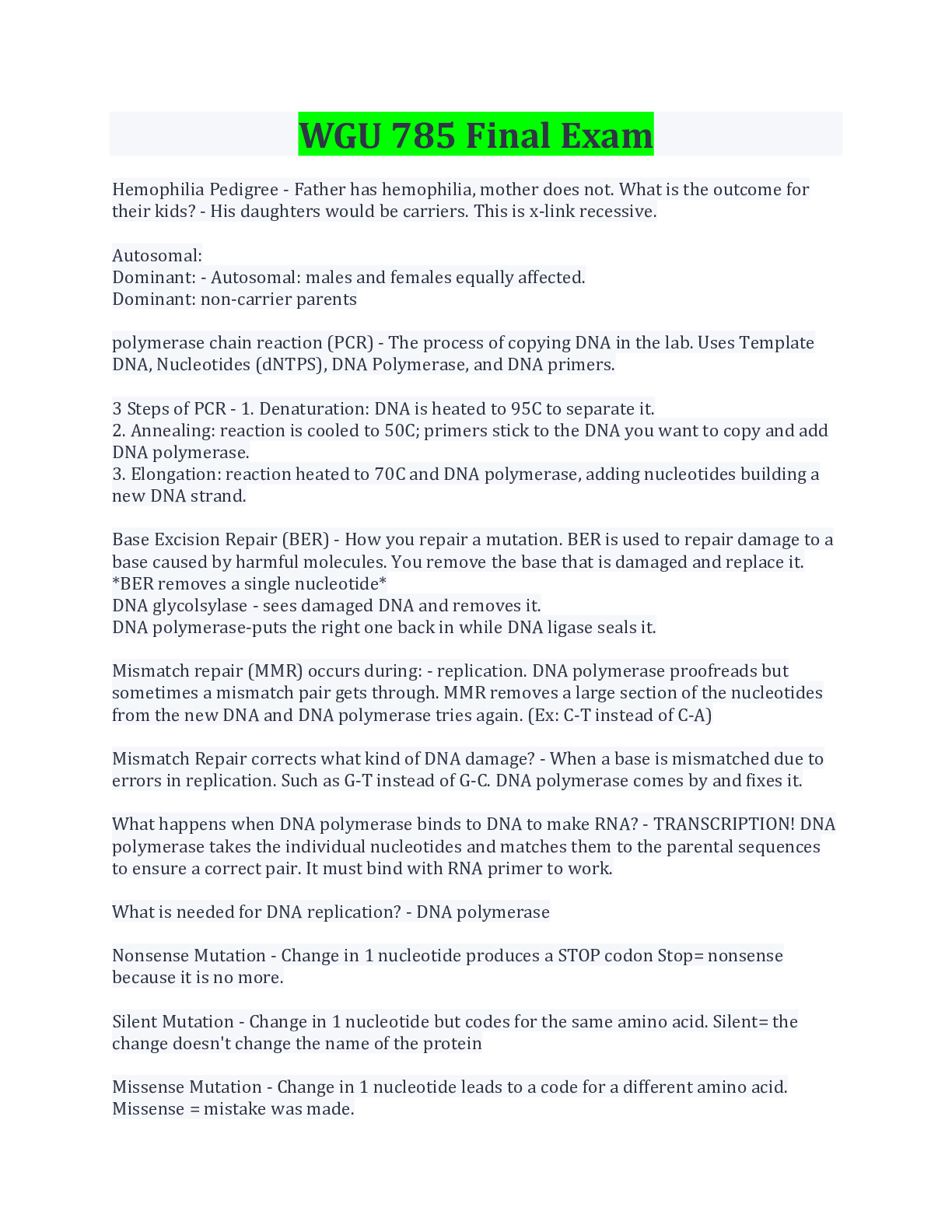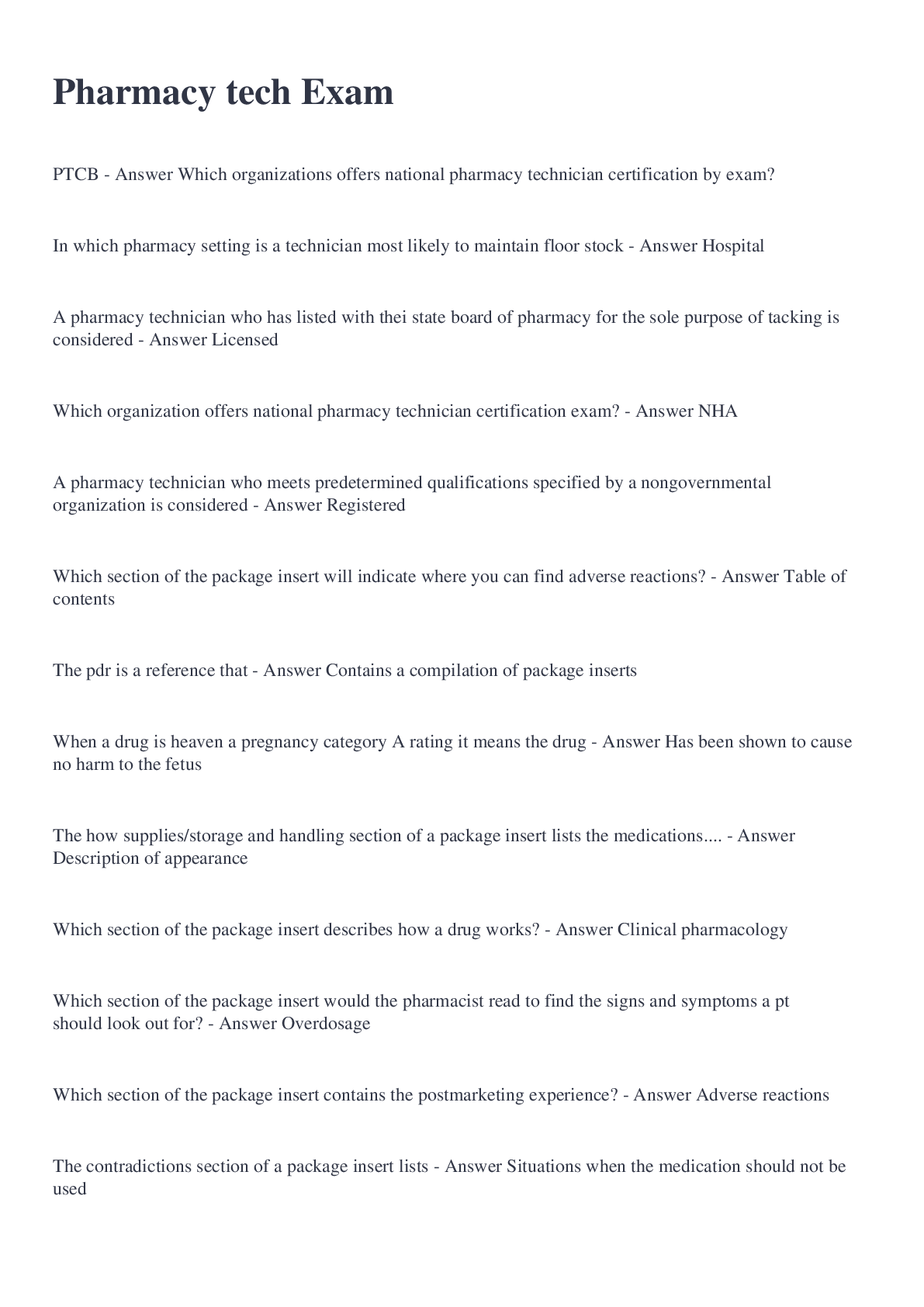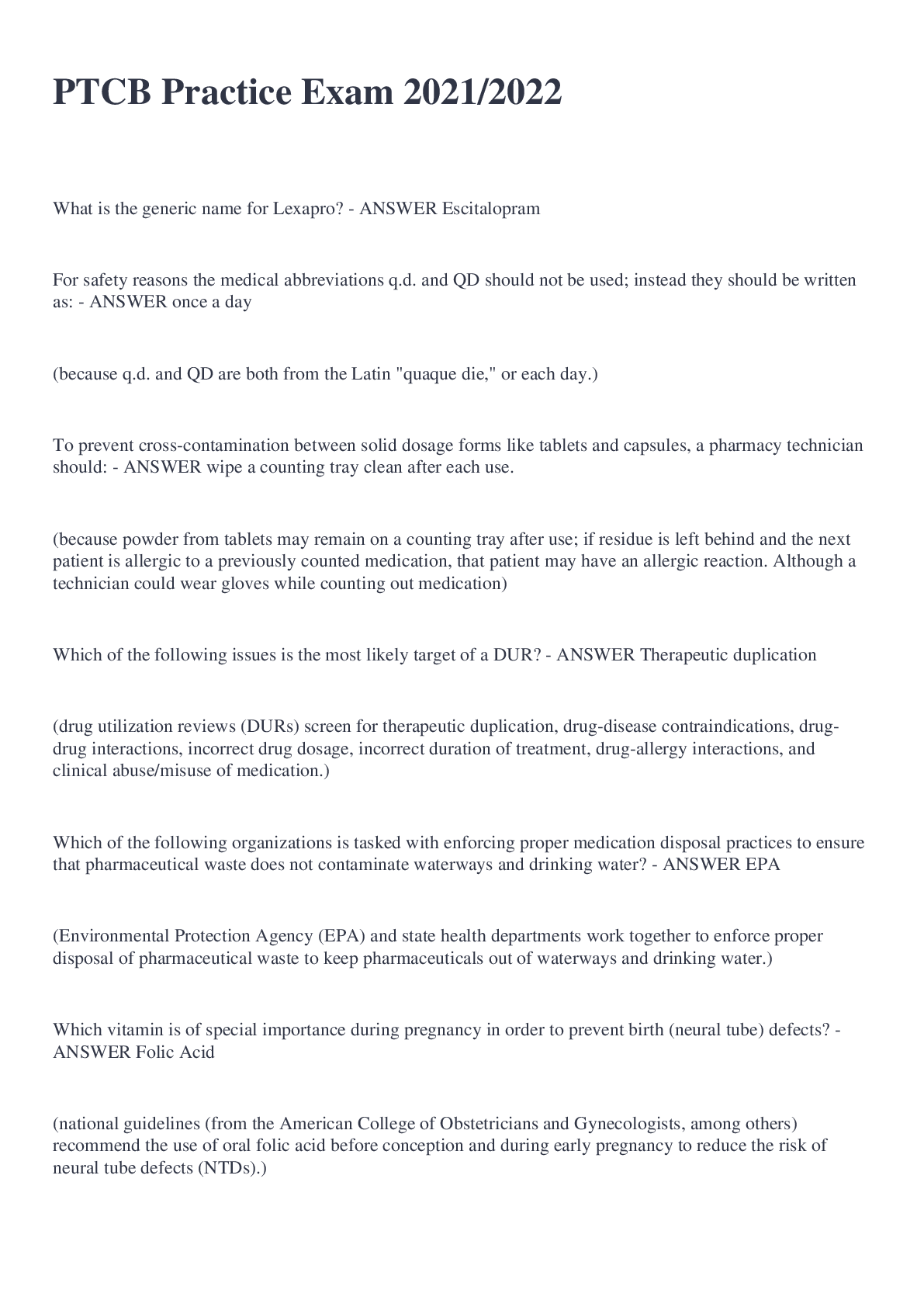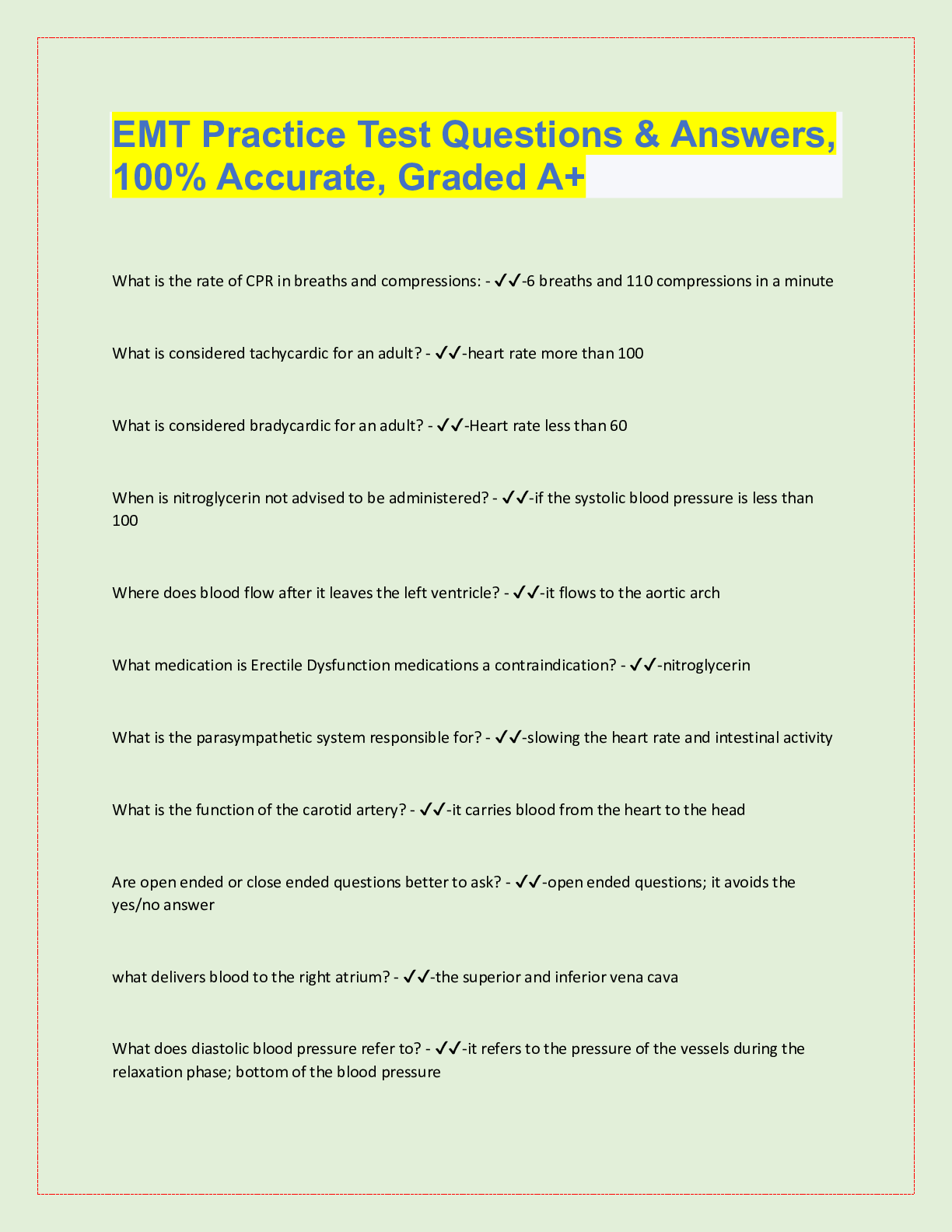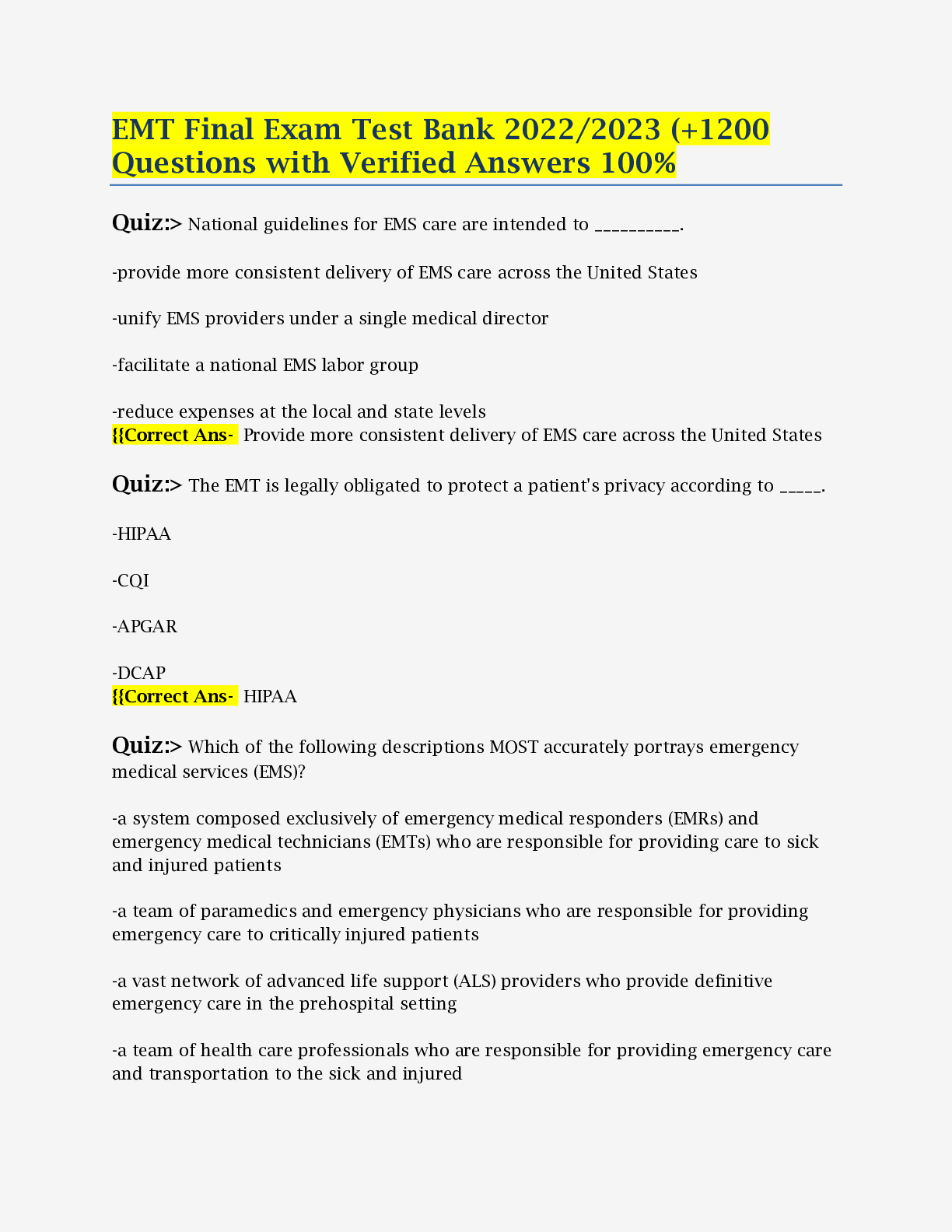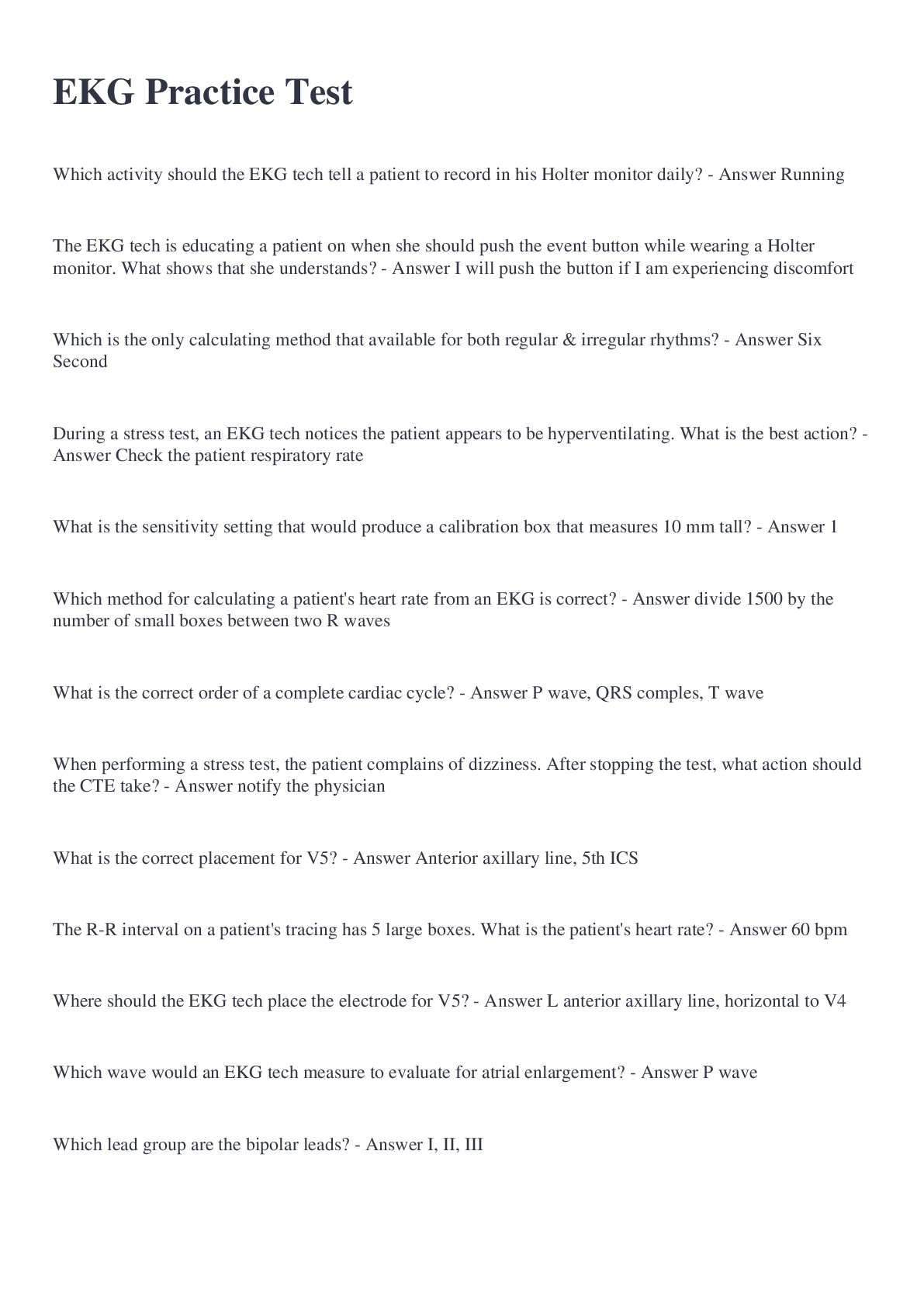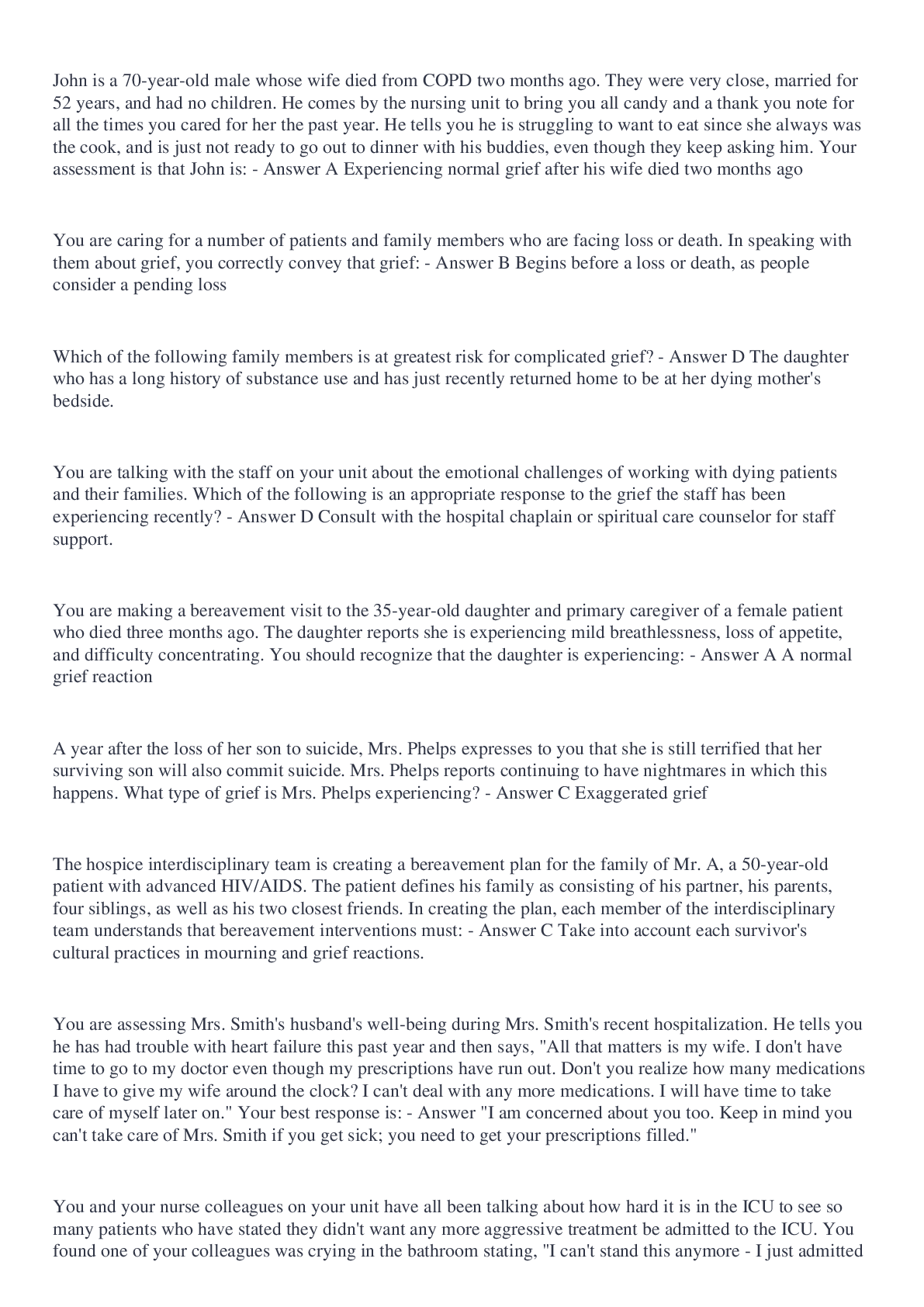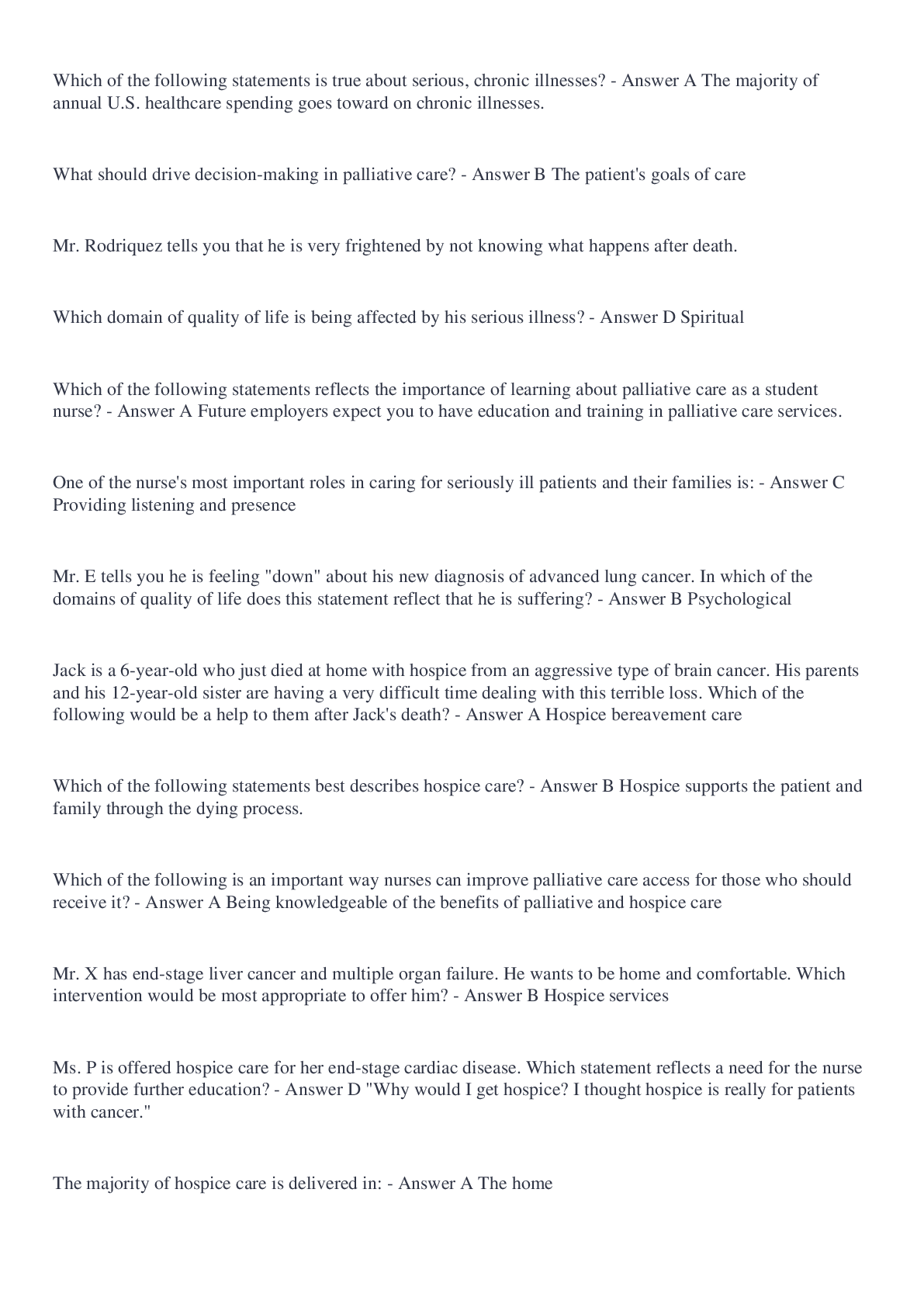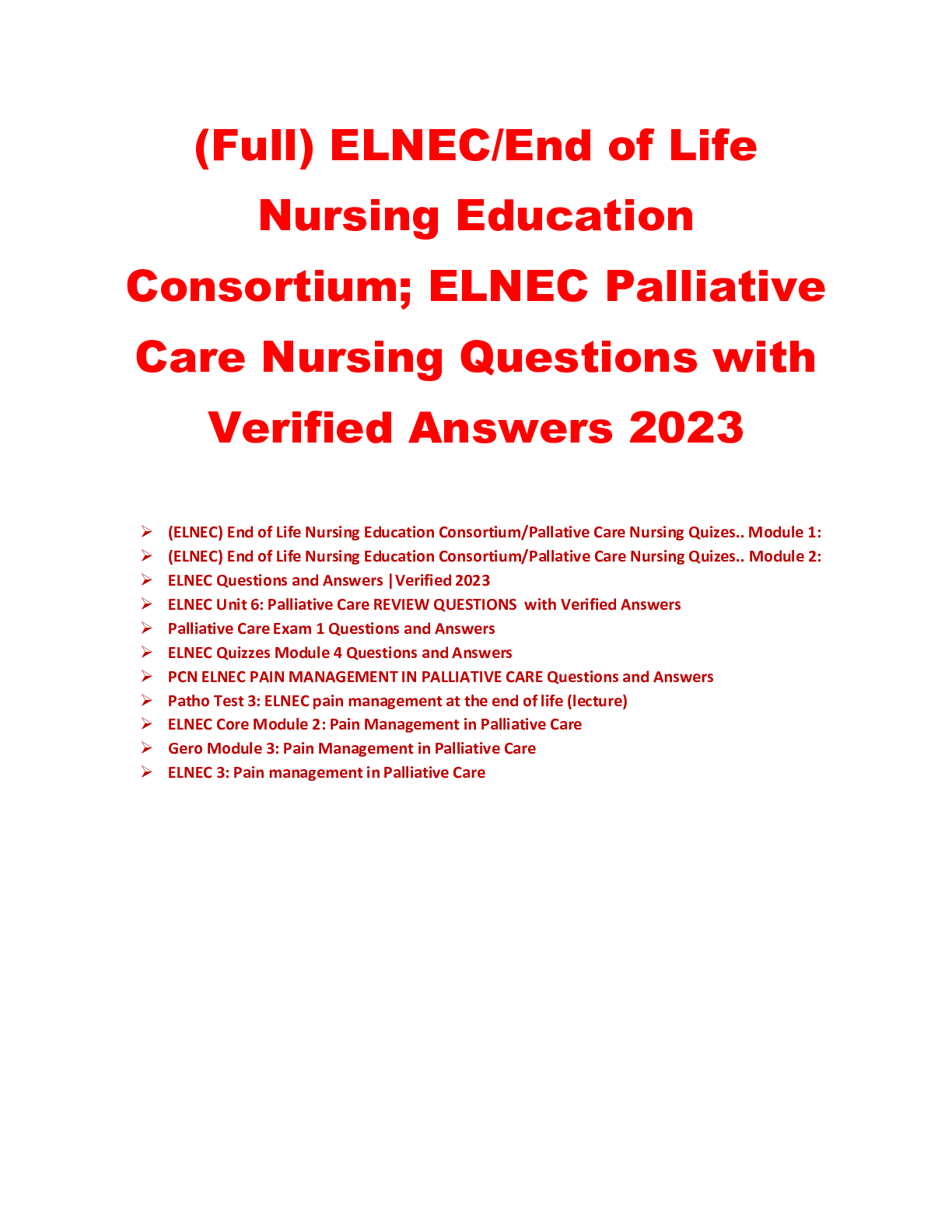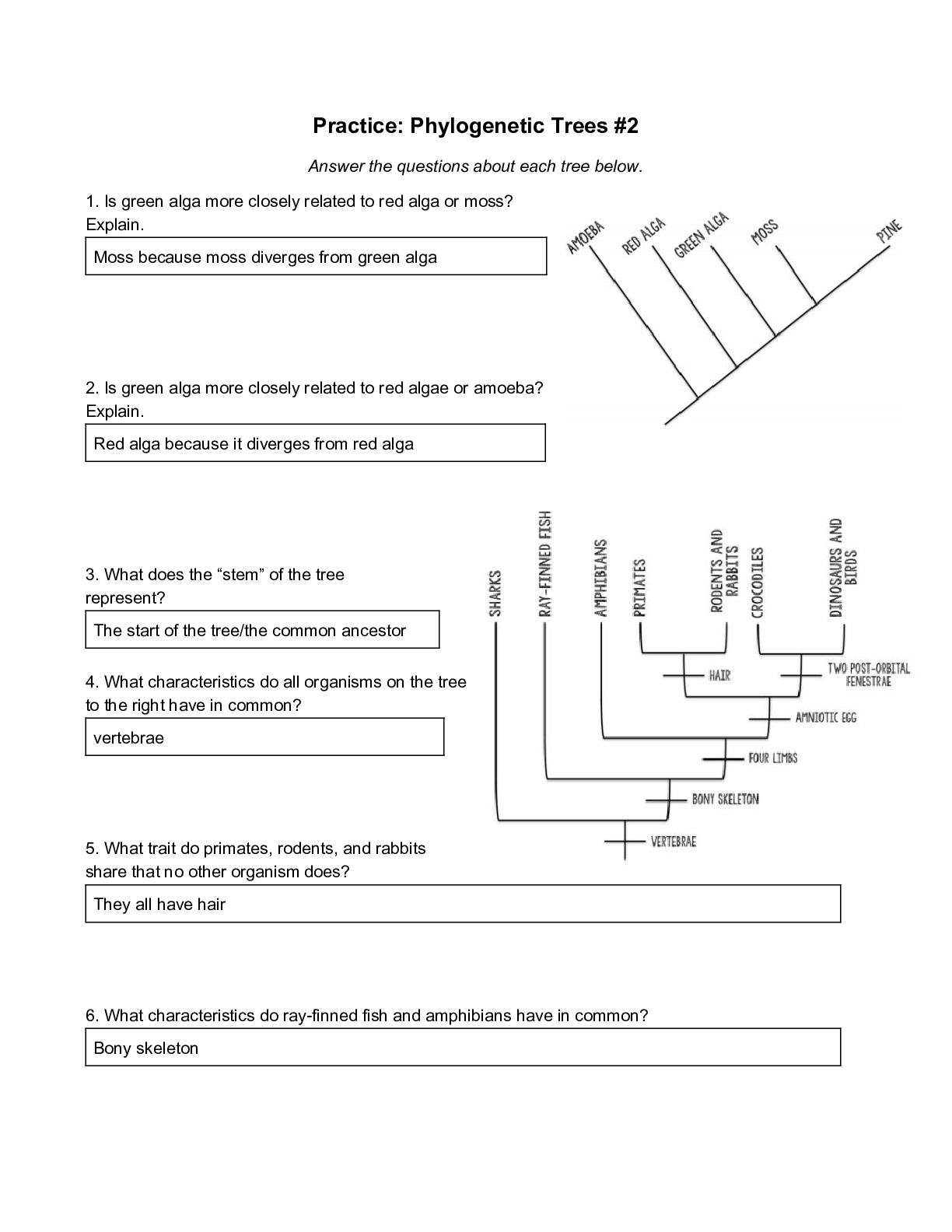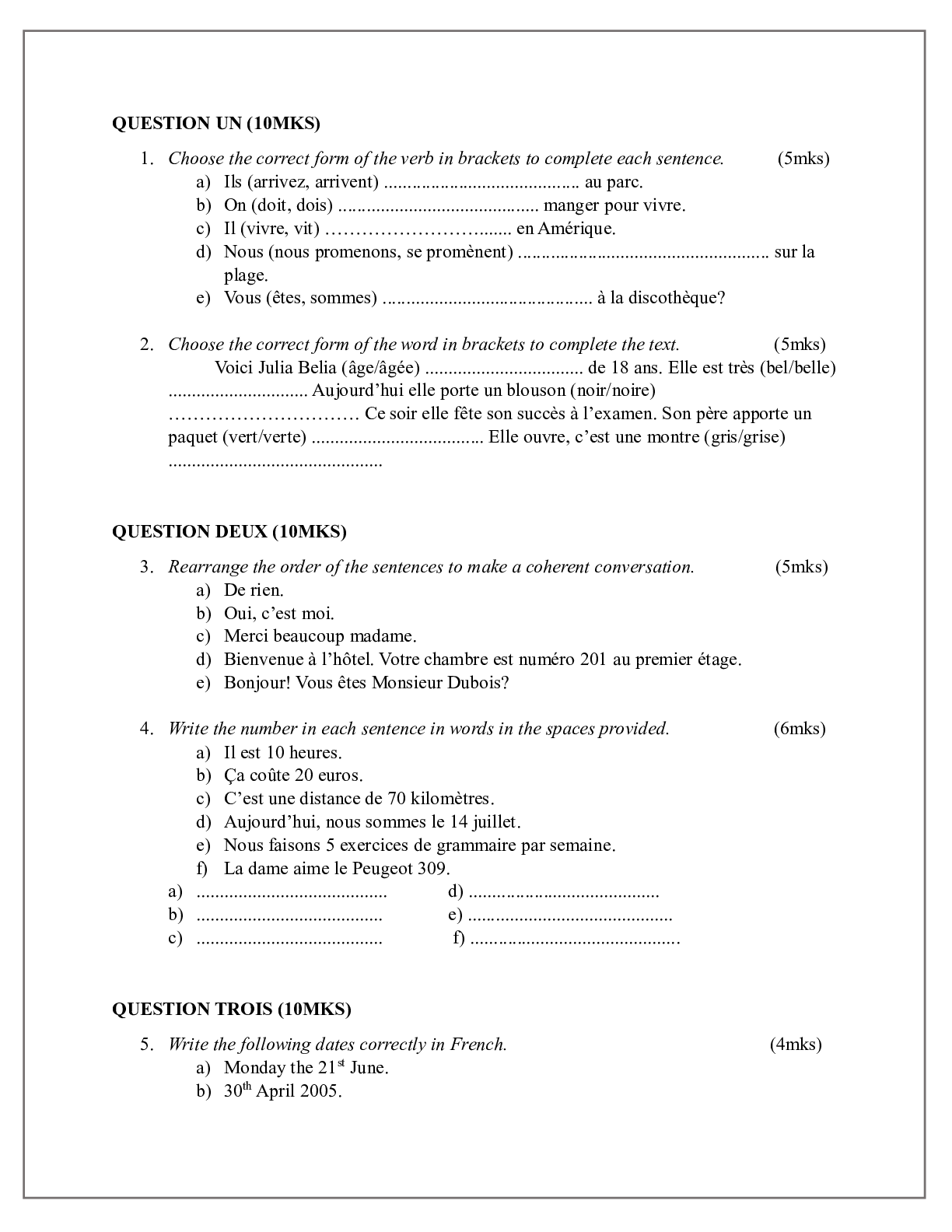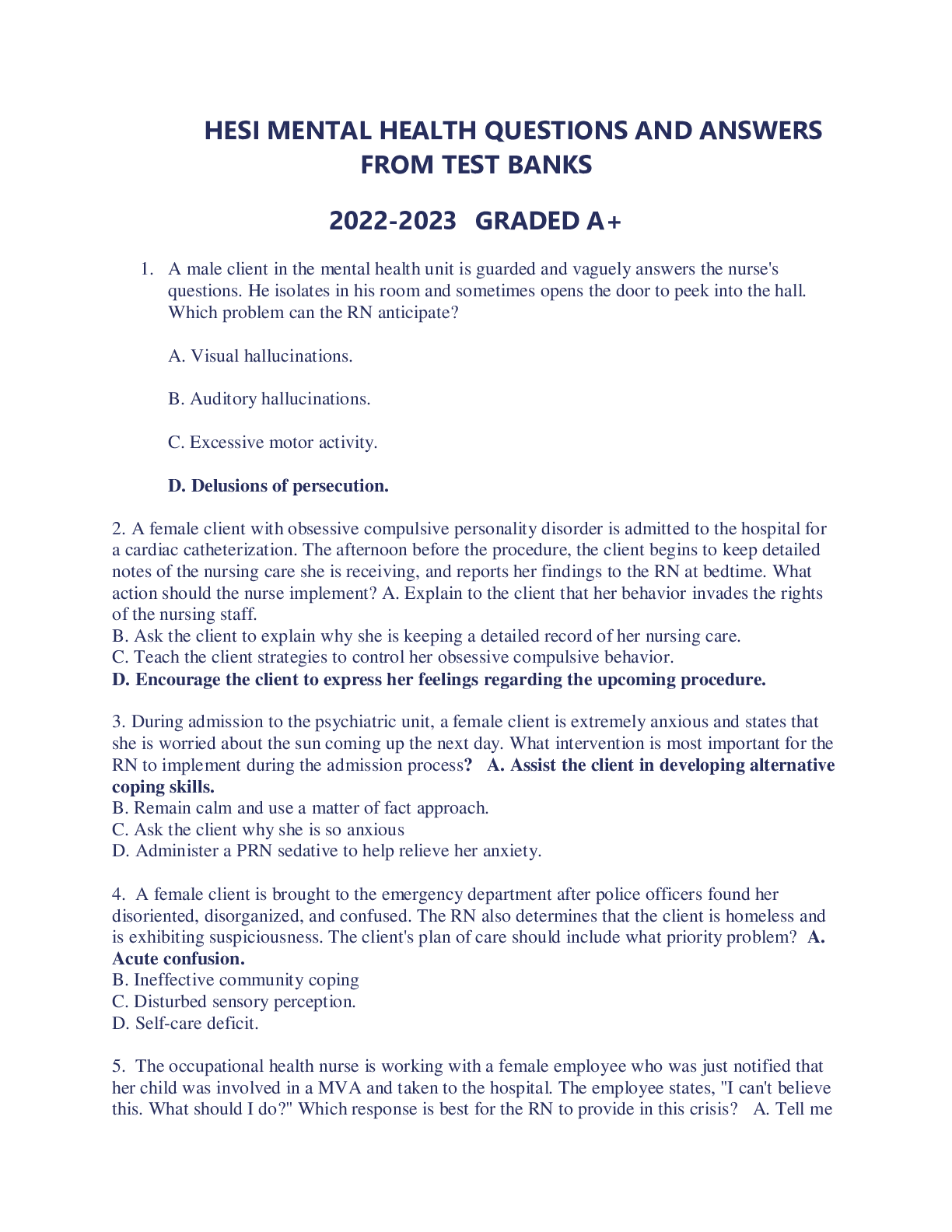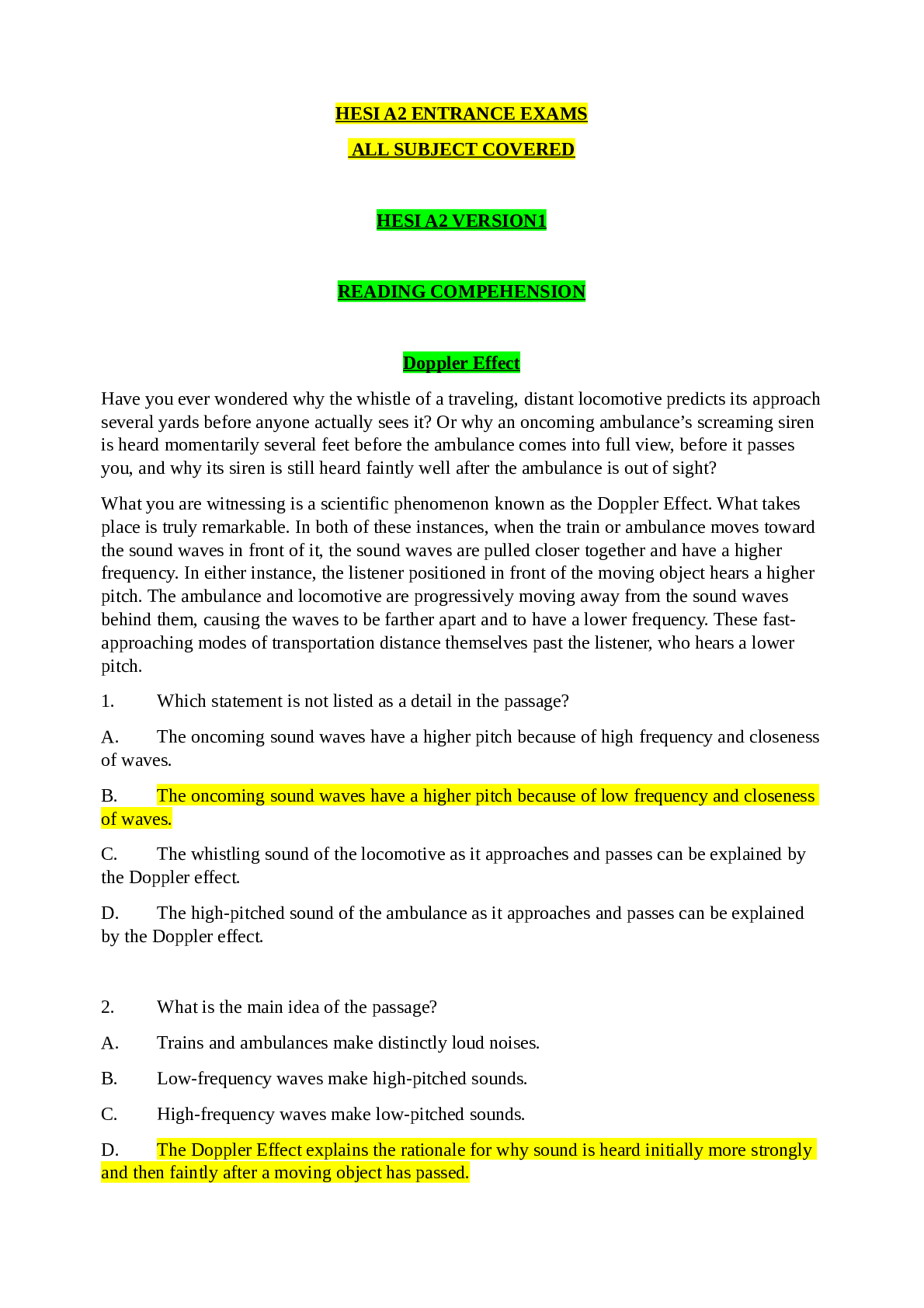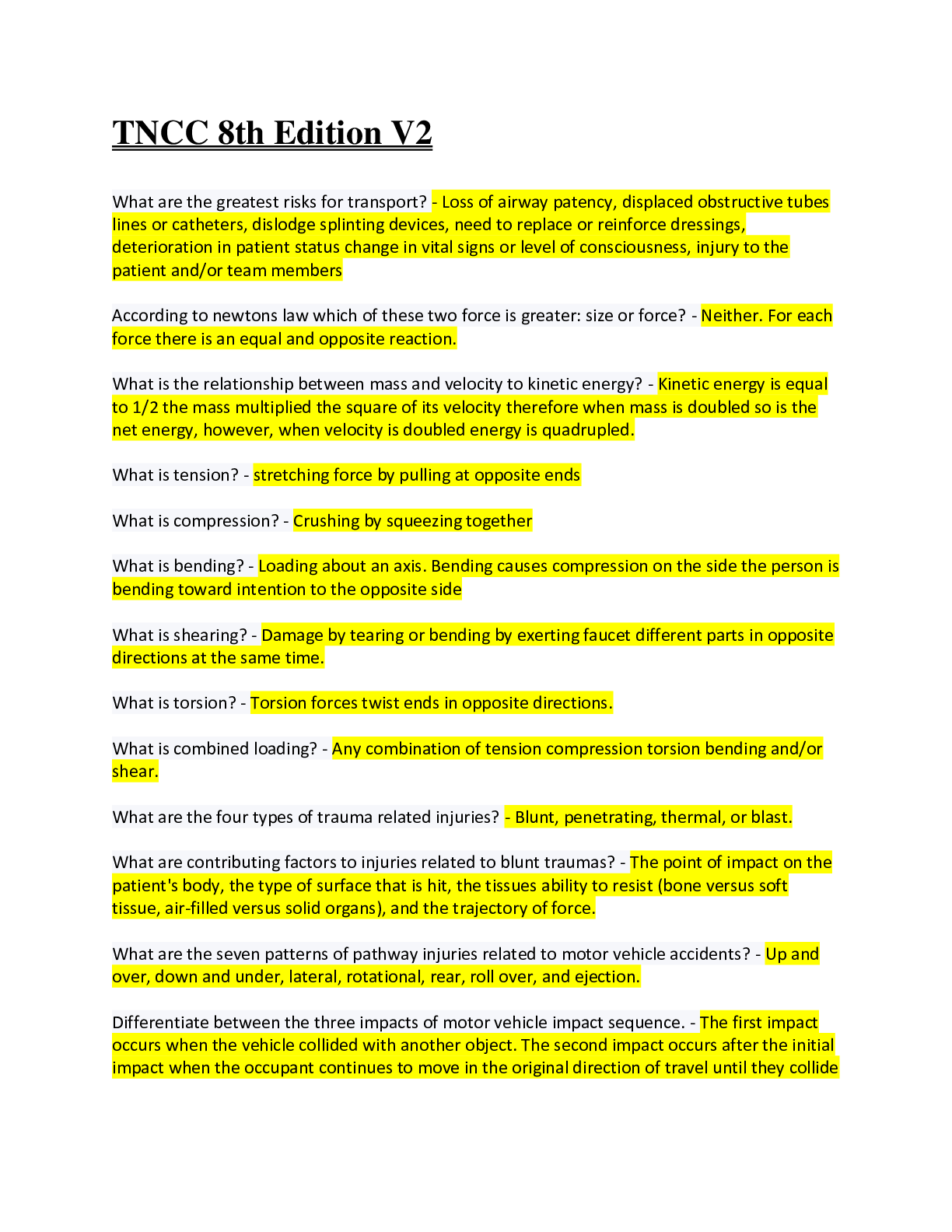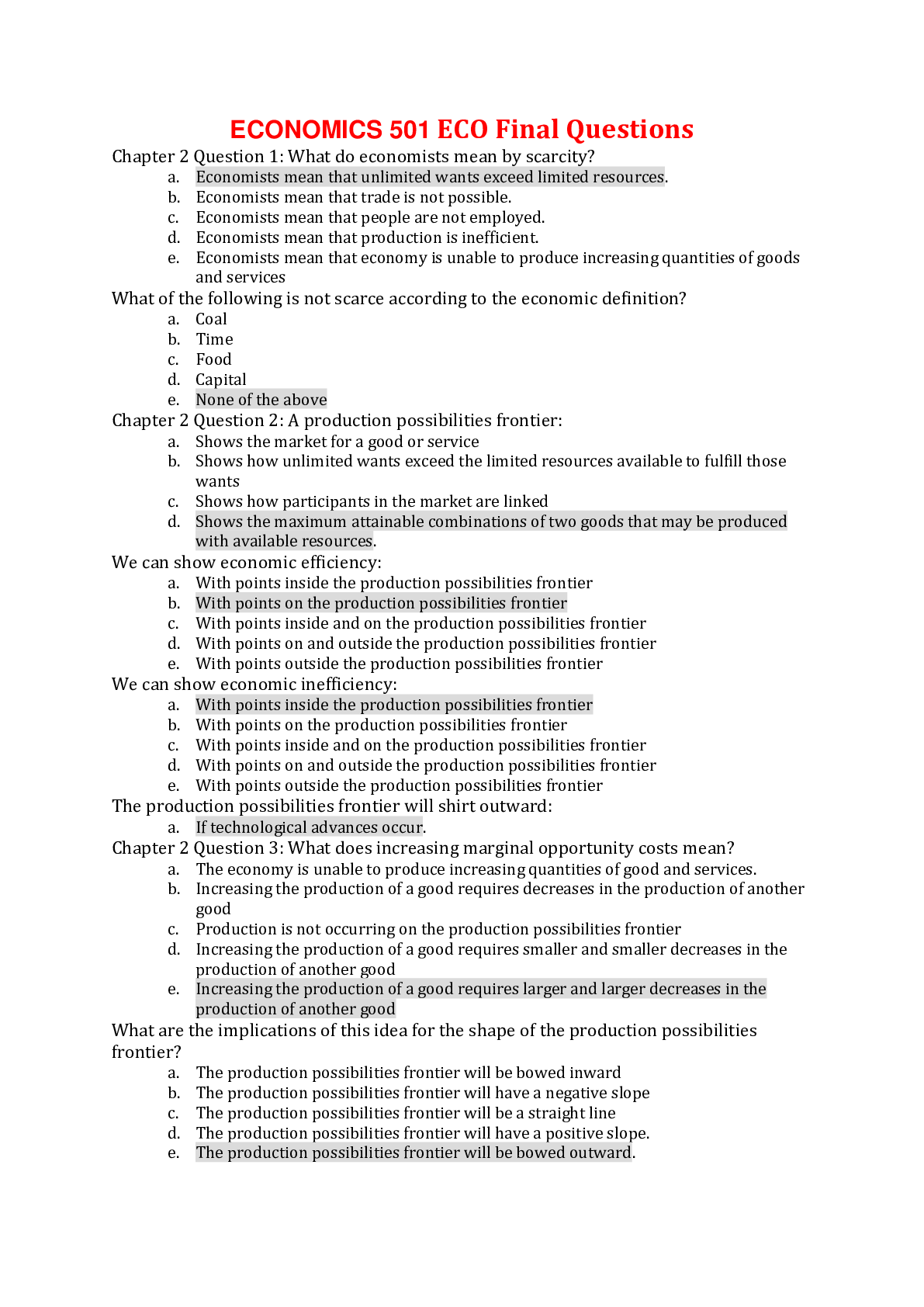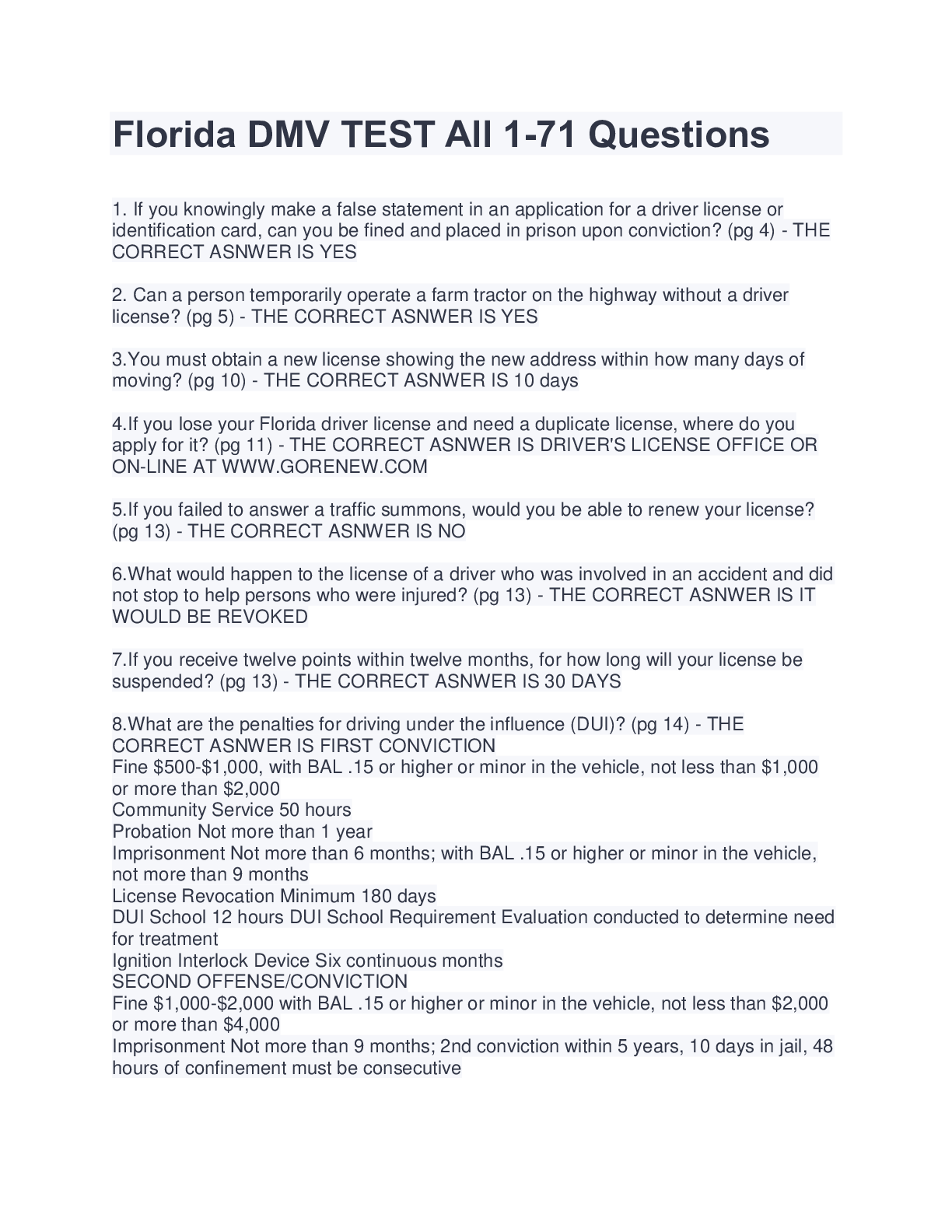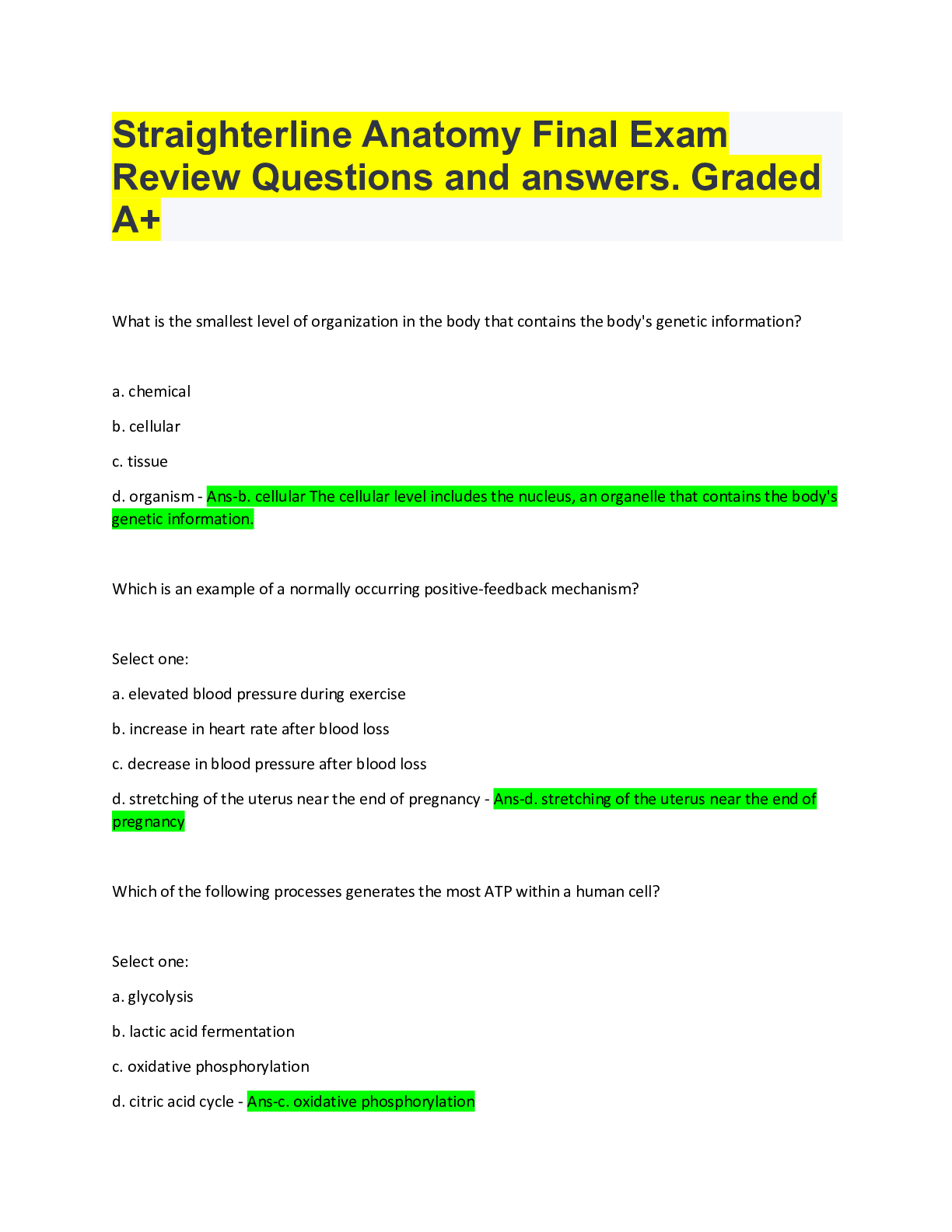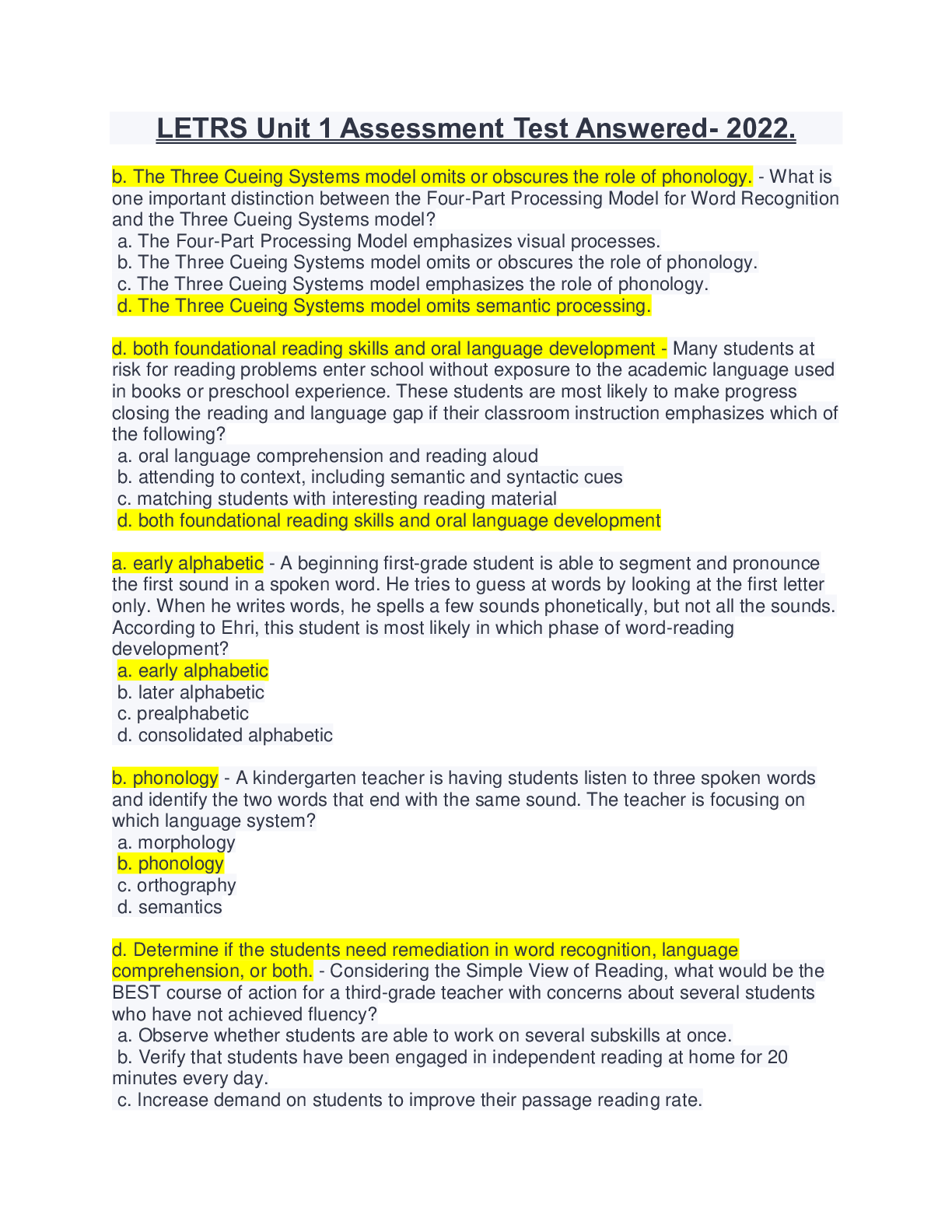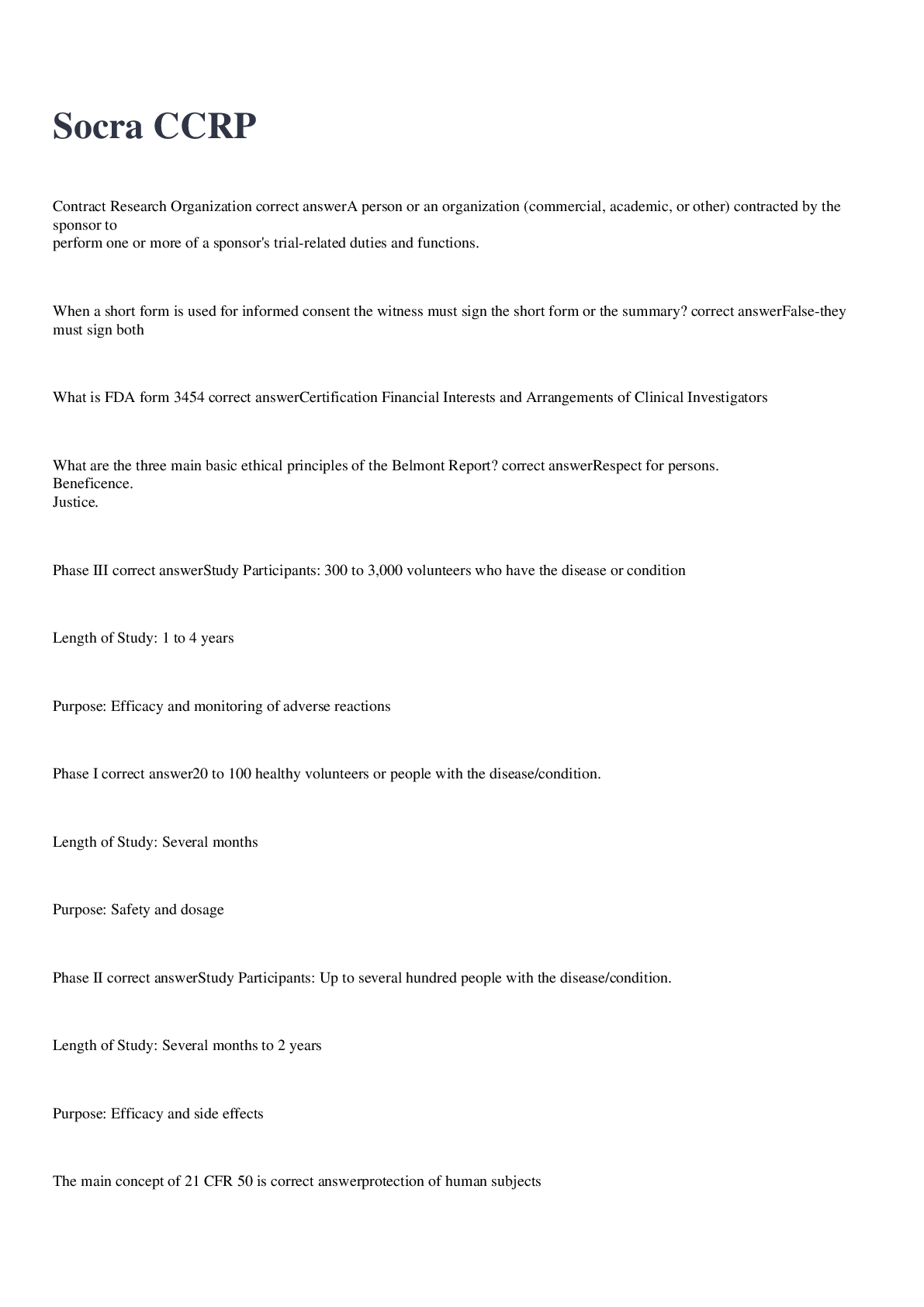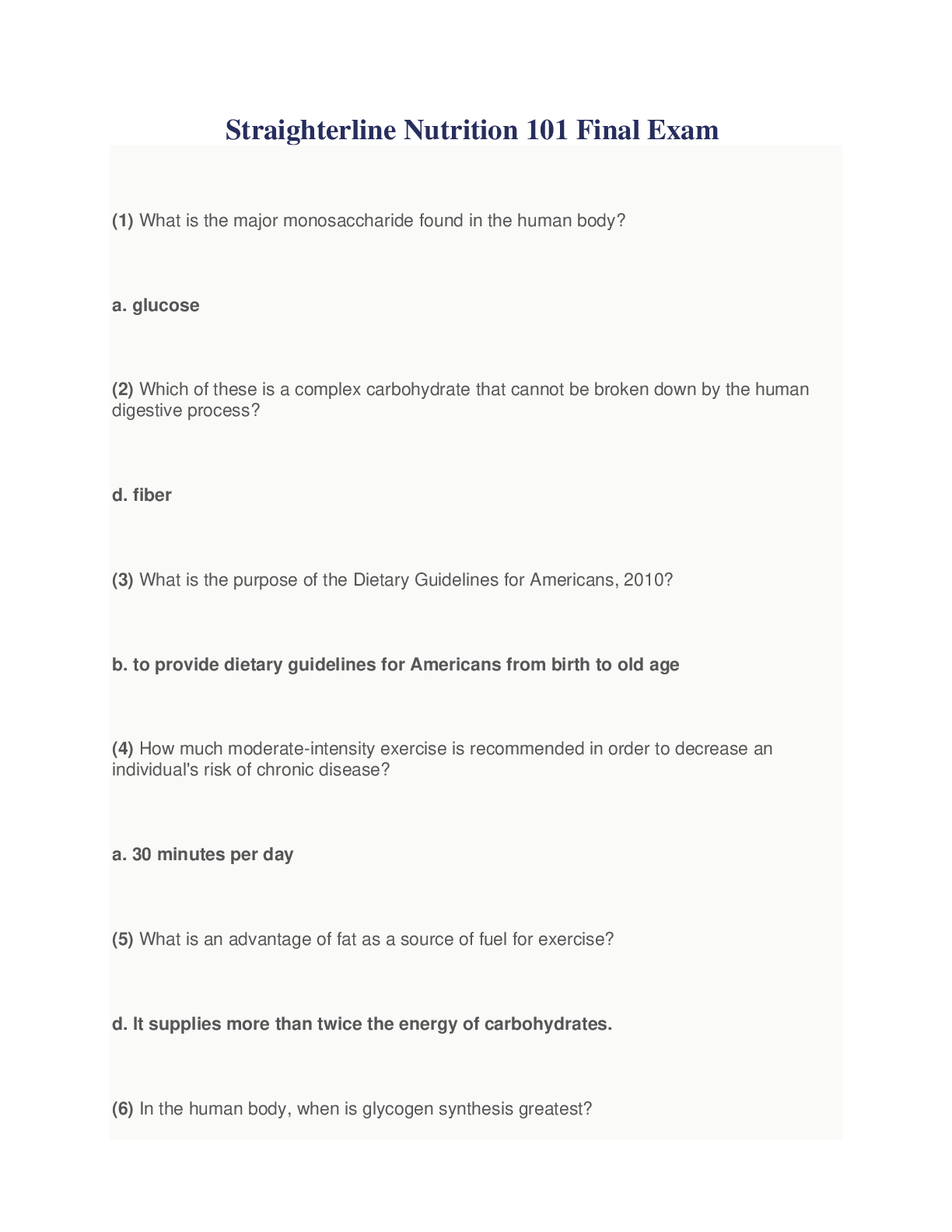*NURSING > EXAM > ELNEC Pallative Care Nursing. End of LIfe Nursing Education Consortium. Module 2: Communication in P (All)
ELNEC Pallative Care Nursing. End of LIfe Nursing Education Consortium. Module 2: Communication in Palliative Care. Section 2: Communication Techniques 2022/2023
Document Content and Description Below
Mr. G has just been told he has a serious illness. Which of the following statements reflects respectful communication with him about his treatment and illness? B "It is important that we understand ... what your hopes are for your treatment of this illness." You are teaching your colleagues about myths and realities of communication in palliative care. Which is a correct statement about communication? C "The majority of messages we send are non-verbal." You are helping a new member of the palliative care team understand the ways the behavior of healthcare professionals can produce a communication barrier. Which statement by the team member indicates the need for additional education on communication barriers? B "I will keep an emotional distance in order to maintain a professional relationship with patients." Jane, a 72-year-old woman with end-stage renal disease, tells you she thinks she doesn't want to continue dialysis anymore. Which of the following would be your best response to this statement? C "That is a very important statement, can you tell me more about that?" You are speaking with the family of a patient recently diagnosed with end-stage heart failure. How can you best demonstrate attentive listening? D Use non-verbal signals such as nodding one's head and eye contact. An 85-year-old patient with end-stage heart disease arrives unconscious at the emergency department after sustaining her third myocardial infarction. The physician has told the daughter that without resuscitation, her mother could die today. You find the daughter crying by the patient's bedside. Which intervention is most appropriate in communicating with this family member? C Remain present with the daughter, using silence to impart comfort. You are entering a room to administer a medication to your patient and as you come in you find that the three family members and the patient are all crying. What should you do next? C Remain silent to give permission to talk with you, holding off on the medication initially. You are working with Mr. T who has just been told his heart failure is getting worse. You go into his room to see how he is doing after the team has shared this information with him. He is staring out the window, looking sad. How do you start your conversation? B "I saw that the team was just here, can you tell me about their conversation with you? Mr. S. has stage IV lung cancer and was admitted to your unit yesterday because of shortness of breath. His breathing has improved with treatment and you tell him you are hoping to get to know him better so you can provide the best care possible. Which of the following statements reflects your interest in getting to know him? A "Can you tell me what has given your life meaning?" Roland was just told that his therapy for advanced prostate cancer is not working. He asks you, "Why is this happening to me?" What is the most appropriate response? A "I don't know. I wish I had an answer for you, but I don't." You are planning to assess the emotional and spiritual needs of a patient in the advanced stages of HIV/AIDS. Your first action to open the communication process should be to: A Find out if the patient feels like talking. You have been the pediatric nurse caring for a young boy with a malignant brain tumor who just died on your unit. The parents are in the room with their son and ask you if you would stay with them. Your best response is: A "I am here and I will not leave you until you are ready for me to." Mr. G had a meeting with the physician this morning about his wife's condition. He was told she has weeks to live and that they should consider hospice. You have known Mr. and Mrs. G for about 6 months, as she has been in and out of the hospital frequently. Mr. G asks to talk with you because he is upset about this news. Your best initial response is: A "I wish this news was different for you and Mrs. G." You are working on developing your communication techniques to use when talking to patients and families. Which of the following indicates you have a good understanding of important communication skills in palliative care? D "I should acknowledge the emotions that the patient and family is expressing." You are taking care of a 68-year-old woman who has advanced metastatic breast cancer. She tells you that she is afraid she is dying and won't be alive to see her first grandchild born in four weeks. You pull up a chair to talk with her and say: B "Can you tell me more about what you are most afraid of?" John tells you that he doesn't want his wife to know that he has cancer. You sit down to talk about this with him. You begin this conversation with: D "Can you tell me what it is about your wife knowing about the cancer that is bothering you?" You are caring for a patient who just had surgery that revealed stage IV ovarian cancer. She does not know her diagnosis. Which action should you take in preparation for the patient to be told her diagnosis? D Find out how much the patient and family want to know. Ms. H's family is in the waiting room of the intensive care unit. Ms. H is very ill and the family has been told she will probably die during this hospital admission. You are walking by the waiting room and you see that they are all seated together, crying. What is your best response? D Go into the waiting room, sit next to them, and give them time to talk with you. Which of the following statements reflects that you are responding appropriately to a conflict between you and a physician regarding a patient's decision to stop chemotherapy? B "This decision is the patient's decision - it is not ours to make." A colleague comes to you to talk about a conflict he is having with another healthcare professional. Which of the following would be good information to give him about handling conflict? C "Check that the conflict is not about you and getting your own way." [Show More]
Last updated: 1 year ago
Preview 1 out of 3 pages
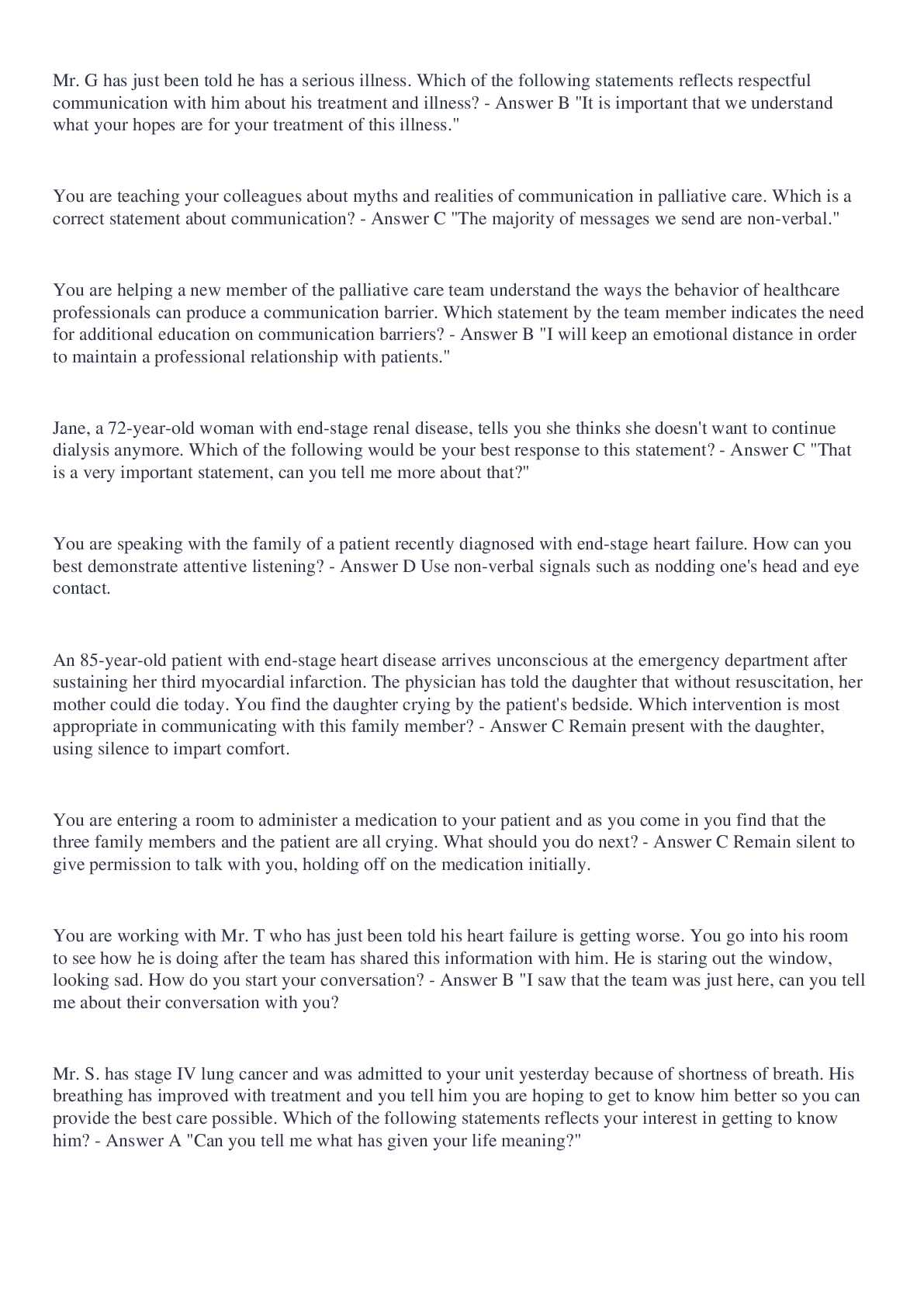
Reviews( 0 )
Document information
Connected school, study & course
About the document
Uploaded On
Nov 27, 2022
Number of pages
3
Written in
Additional information
This document has been written for:
Uploaded
Nov 27, 2022
Downloads
0
Views
34

